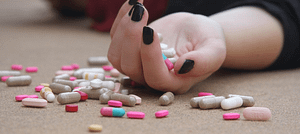Doctors have been reporting burnout for a long time, and new studies show they are more stressed than ever. You can check this link https://www.sciencesetavenir.fr/sante/les-jeunes-medecins-mal-prepares-a-l-exigence-emotionnelle-de-leur-metier_113824 to know the causes that lead doctors to depression.
Workload

General practitioners have reported burnout rates of 79 percent, and experts have reported Burnout rates of 57 percent (68 percent complete for most forms). Part of a wider trend, new information is consistent with an increased tendency for physicians to become exhausted how offices help or not. According to the survey, only 25% of physicians say that their workplace deals efficiently with medical Burnout. These are the options that doctors say they can contain Burnout. A total of 53 percent said that their workplace has dealt with Burnout, working “completely inactive” without being aware of it. “The workload of doctors is constantly increasing,” said another general practitioner in private practice. This generation? The once prestigious profession is rapidly losing its splendor.
Almost 6.7 percent of American adults suffer from melancholia every year, one of the most widespread mental disorders in the United States. Although the word “depression” is often used as a synonym for depression, it is a little more than that: it is a severe mental disorder that requires immediate medical attention. Untreated depression can lead to chronic mental illness or cause suicidal thoughts in a person. In the medical profession, the prevalence of depression increases several times, leading to increased medical errors and inadequate patient care. Need to develop effective strategies for the prevention and treatment of depression among junior doctors. The study emphasized that depression among doctors is terrible for new doctors and the patients they treat.
Access to Drugs

“The increase in melancholy is sharp and significant, especially in cases where reforms have been implemented over the years with the aim of improving not only the well-being of individuals, but also the emotional health of residents,” said the analysis. In this study, researchers examined depressive symptoms in more than 17,500 resident physicians after collecting information from 54 different studies conducted over five decades. According to the results, 28.8% of junior doctors showed melancholy signs, and the prevalence rate increased significantly over the analysis period. If they are diagnosed with severe mental illness such as depression, this may be a conclusion for their livelihood and position.
Many doctors in private clinics with depression seek refuge from alcohol and prohibited drugs to combat this problem. Sometimes the higher rate of drug abuse among doctors than the general population can mean that they have easier access to drugs and substances. Living a life free from depression is possible. If not treated by mistake, depression can affect the quality of life. Constant pain and grief lead people to despair and darkness. It is essential to seek expert guidance to get rid of depression as a way of life. Seeking medical or professional help as soon as possible can significantly alleviate problems and challenges.
